How to Do SEO with AI
Search Engine Optimization (SEO) is evolving rapidly, and Artificial Intelligence (AI) is becoming a powerful ally for digital marketers. From keyword research and content creation to analyzing user intent and automating technical tasks, AI tools can significantly improve your SEO strategy. In this guide on How to Do SEO with AI, we’ll explore practical techniques, tools, and best practices to help you rank higher, save time, and stay ahead of the competition.
The rise of artificial intelligence (AI) is transforming search engine optimization. AI-powered tools now automate many SEO tasks – from keyword research to content ideation – allowing marketers to work faster and smarter.
Google itself embraces AI: its new AI Overviews summarize answers from top-ranking pages, and research shows that links in these AI answers receive more clicks than ordinary results. Crucially, traditional SEO still matters in this AI era – pages ranking high on Google are much more likely to be cited by AI search tools.
This guide explains how to harness AI tools for SEO effectively, while following best practices for content quality. Generative AI is being integrated into search engines through Google's experiments with AI "Overviews" and its upcoming AI Mode, which synthesize answers from the web.
In practice, AI SEO means using machine learning and natural language tools to improve websites and content for search engines. These tools can analyze trends, suggest relevant topics, and even draft content outlines, while humans ensure everything is accurate, original, and user-focused.
- 1. Using AI for Keyword Research
- 2. AI-Assisted Content Creation & Optimization
- 3. Automating Technical and On-Page SEO
- 4. Personalization, Voice Search & Local SEO
- 5. AI-Driven Analytics and Insights
- 6. Best Practices and Cautions
- 7. The Future of SEO and AI
- 8. Top AI Tools for SEO Optimization
- 9. Conclusion
Using AI for Keyword Research
AI can supercharge keyword research by revealing user intent and uncovering related queries at scale. Modern SEO tools use AI to cluster and analyze large keyword datasets.
For example, tools like Semrush and Ahrefs now incorporate NLP models to categorize keywords by search intent (informational, commercial, transactional, navigational). AI systems can rapidly generate lists of long-tail and question-style keywords based on a topic prompt.
Identify Intent & Gaps
Cluster Keywords
Analyze Competitors
By combining AI suggestions with tools that provide actual search volume data, you can build a keyword strategy that's both creative and grounded in real search trends.
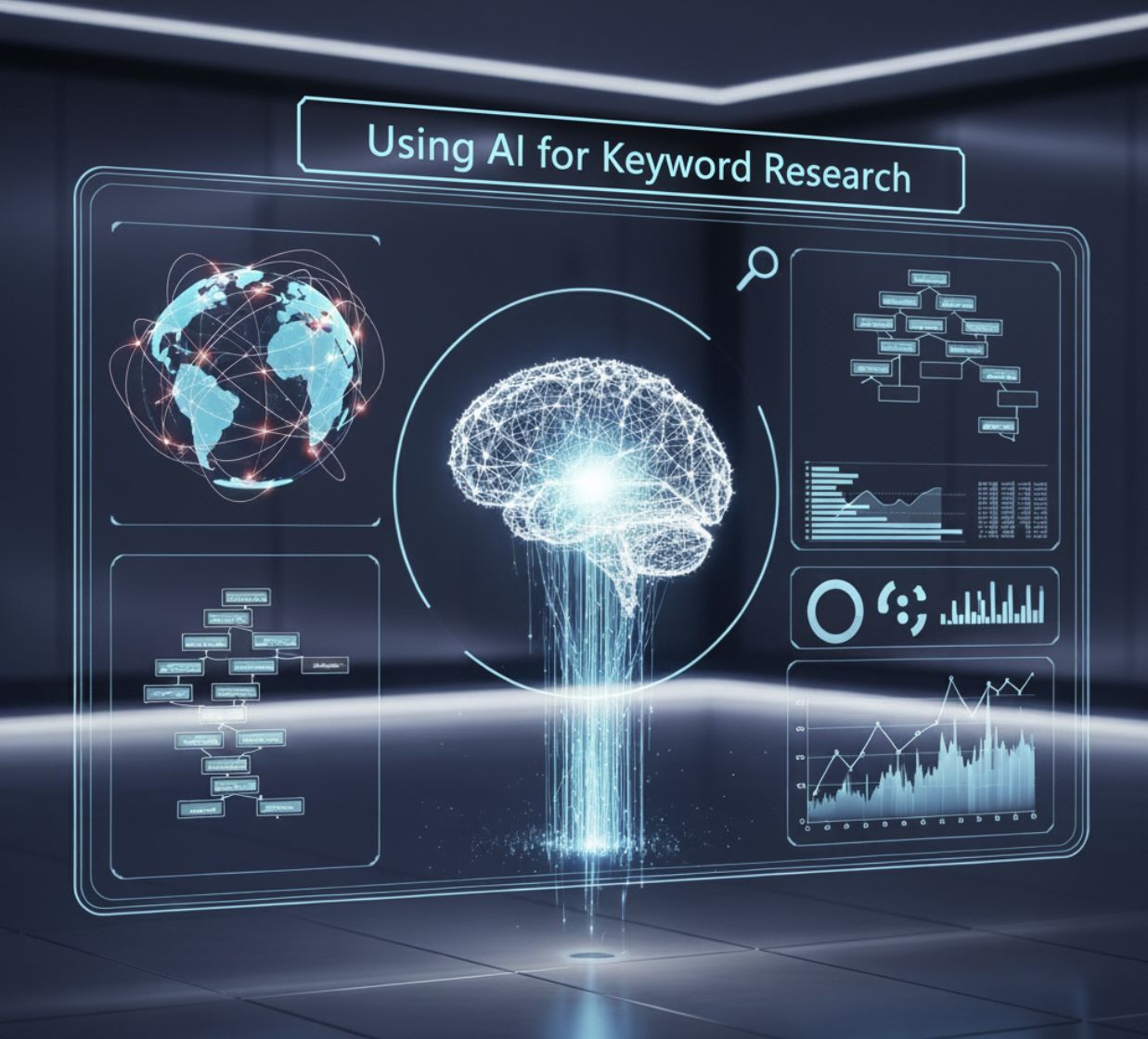
AI-Assisted Content Creation & Optimization
AI excels at brainstorming and drafting content, but high-quality, human-led writing is still paramount. Use generative AI to speed up your content workflow, then refine the results for accuracy, uniqueness, and voice.
Topic Ideation
Large language models (LLMs) like ChatGPT can suggest blog ideas or topic clusters. A detailed prompt can yield content topics tailored to your audience and goals.
Content Outlines
AI can draft an outline or article structure. You might ask an AI to "create an outline for a guide on benefits of yoga," and it will organize headings and bullet points.
Draft Generation
AI tools (ChatGPT, Jasper, Writesonic) can produce first-draft paragraphs or social posts. Writers can then edit these drafts, ensuring factual accuracy and adding unique insights.
Optimization Checks
AI-powered content tools (Surfer SEO, Clearscope, SEOClarity) analyze high-ranking pages and suggest improvements. They identify missing terms, recommended word count, and structural patterns.
Focus on E-E-A-T (Expertise, Experience, Authoritativeness, Trustworthiness) and ensure your content adds unique value. As Google puts it, creators should produce "original, high-quality, people-first content" whether writing themselves or using AI.
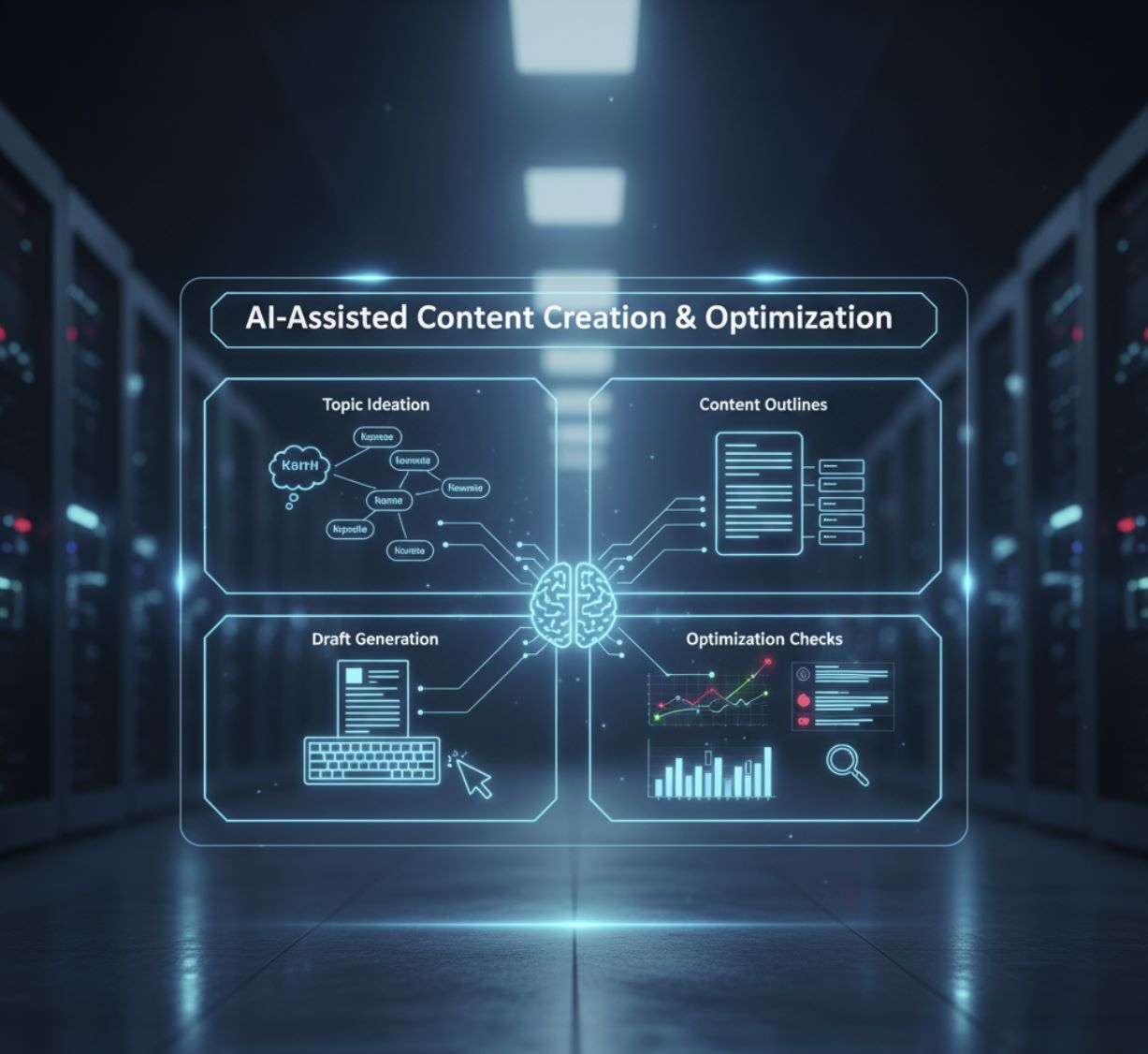
Automating Technical and On-Page SEO
AI tools can also help automate many on-page and technical SEO tasks, freeing you to focus on strategy while ensuring technical excellence.
Technical Audits
Meta Tags & Schema
Content Refinement
Image Optimization

Personalization, Voice Search & Local SEO
AI enables more tailored user experiences, which indirectly boost SEO by increasing engagement and relevance.
Personalized Content
AI-driven personalization tools (Optimizely, Dynamic Yield) display different content to users based on behavior or profile. For example, returning visitors might see a customized hero image or product suggestions.
By keeping visitors engaged longer, personalization can improve metrics like time-on-page and conversion rate, signals that may boost rankings.
Voice Search Optimization
With smart assistants growing, optimizing for voice is key. Voice queries tend to be longer and question-like. AI can help by identifying these queries and generating concise answers.
- Create FAQ sections with natural, conversational answers
- Use short sentences and clear structure for voice assistants
- Implement schema markup and lists for featured snippets
- Ensure mobile-friendliness (most voice searches occur on phones)
Local SEO
AI tools analyze location-based data to improve local visibility. They can manage your Google Business Profile, track local keyword trends, and submit citations across directories (Yelp, Apple Maps, etc.) automatically.
- Scan 150+ platforms to ensure consistent business information
- Recommend location-specific keywords
- Identify trending local topics
- Optimize for voice search triggers ("near me" queries)
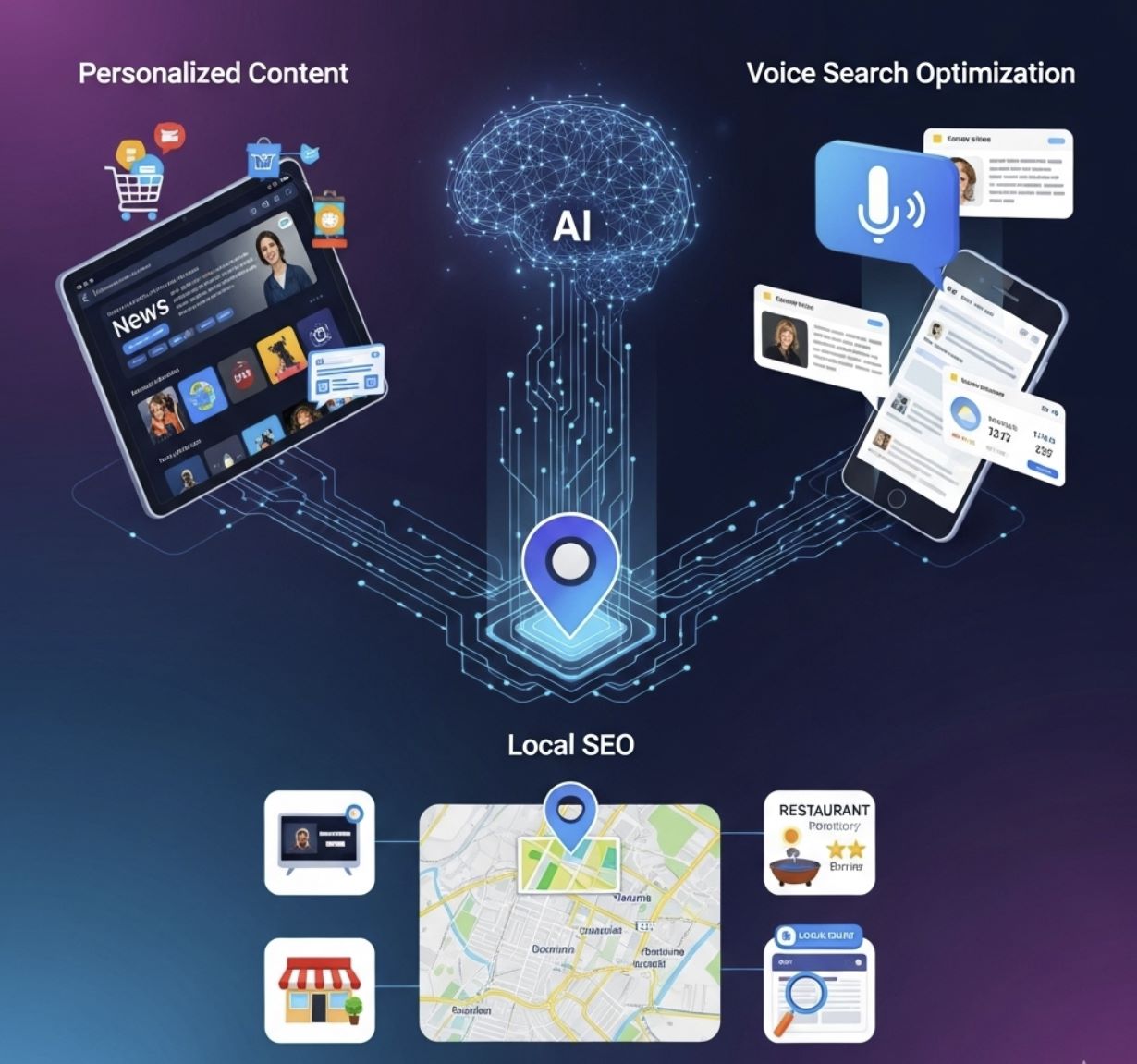
AI-Driven Analytics and Insights
Analyzing performance and competitors is another area where AI shines, providing actionable insights that drive strategic decisions.
Performance Tracking
AI analytics tools sift through SEO metrics and find trends. Predictive features in platforms like Semrush can estimate where your pages could rank for target keywords based on current data.
- Identify high-potential keywords
- Track ranking trends
- Predict future performance
Competitor Analysis
AI can quickly compare your site to rivals. Tools like SEMrush's Domain Overview or Ahrefs' Site Explorer summarize a competitor's traffic, rankings, and featured snippet presence.
- Identify content gaps
- Analyze competitor strategies
- Discover ranking opportunities
Trend Forecasting
Advanced tools (Exploding Topics, Google Trends) use AI to predict rising topics. They analyze huge data sets to flag terms that may surge in popularity.
- Predict emerging trends
- Stay ahead of competitors
- Plan content strategy
The higher you rank in Google's top 10, the more likely you are to appear in AI search results. Pages ranking #1 on Google have about a 1-in-4 chance of appearing in AI answers.
— SEO Industry Research
Many AI SEO platforms integrate all these analytics, providing dashboards that suggest next steps (e.g. "optimize this page, target that keyword"). These insights make your strategy more data-driven and proactive.
Even Google's interface is blending SEO and AI. Its new AI Mode invites users to "Ask detailed questions for better responses," using top web results as sources.
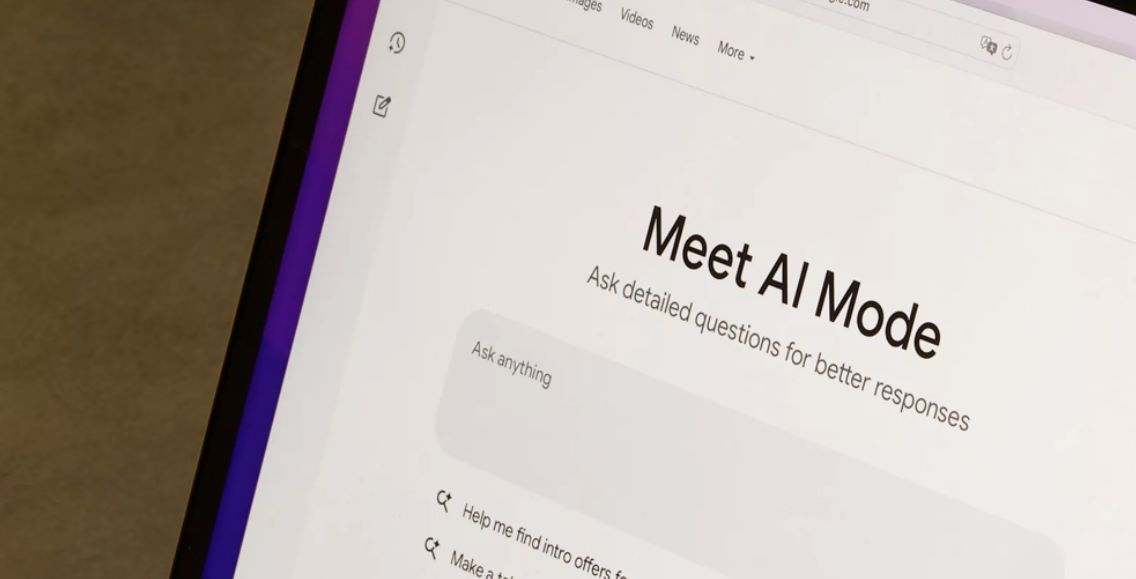
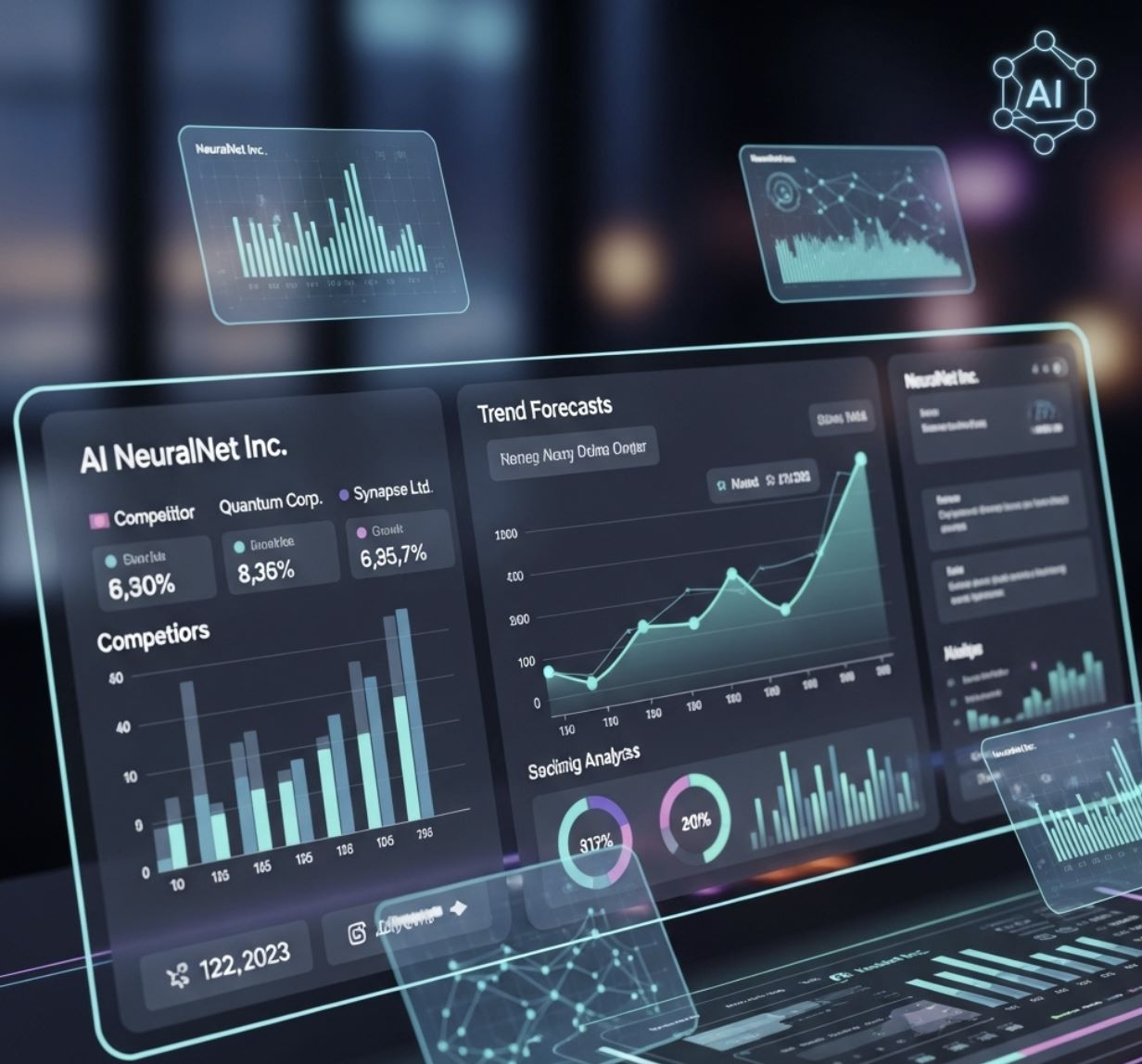
Best Practices and Cautions
When using AI in SEO, follow these guidelines to stay effective and compliant:
Quality Over Quantity
E-E-A-T Matters
Keep Humans in Control
Beware of Errors

The Future of SEO and AI
SEO in 2025 and beyond is a blend of human creativity and AI efficiency. Search engines themselves will keep getting smarter, with Google expanding AI-driven features worldwide and others like Microsoft/Bing and Meta pushing generative answers.
Keyword-Focused Approach
- Ranking for specific keywords
- Manual content optimization
- Basic analytics tracking
- Limited personalization
Answer-Focused Strategy
- Serving precise answers
- AI-assisted optimization
- Predictive analytics
- Dynamic personalization
The core principle remains: answering user questions well. SEO success means producing the best possible answers – whether typed or spoken – and AI is now another medium for delivering them.
Refine Content Strategy
Break broad guides into focused Q&A sections and target related subtopics with precision.
Use Conversational Language
Match voice queries by adopting natural, conversational language in your content.
Monitor Visibility
Track your presence in both traditional results and AI assistants using new analytics tools – a concept called Generative Engine Optimization (GEO).
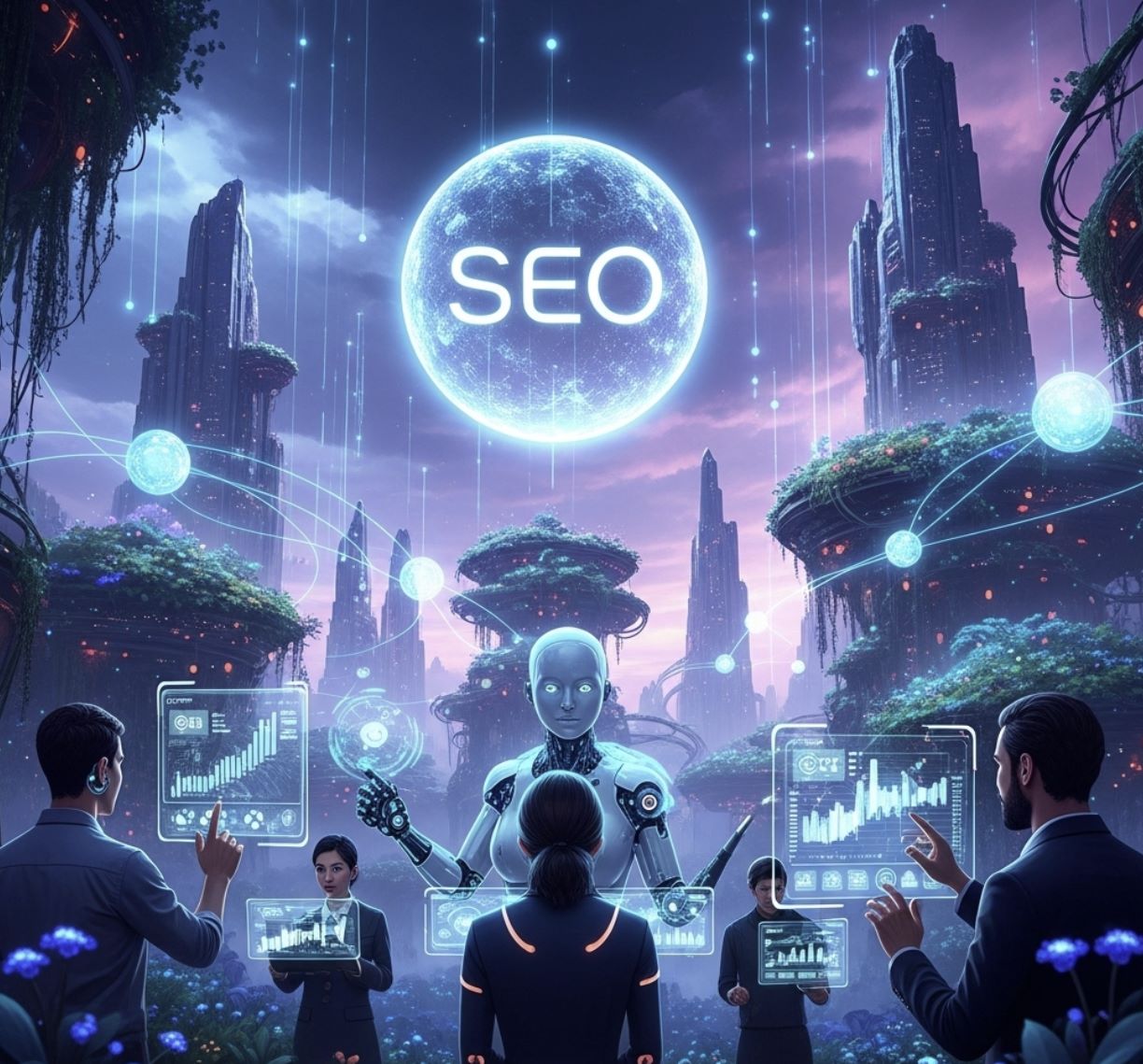
Top AI Tools for SEO Optimization
Frase
Frase (frase.io) is a content research, writing, and optimization platform that leverages AI and SERP data to help creators and marketers craft SEO-friendly content faster. It analyzes top-ranking pages for a given keyword, generates content briefs and outlines, and offers real-time optimization suggestions as you write. Frase also supports importing existing URLs for optimization, integrates with WordPress and Google Docs, and includes features for team collaboration and content workflow management.
SEO.ai
SEO.ai is an artificial-intelligence powered content and SEO platform designed to help marketers, content creators, and SEO professionals generate and optimize web content quickly. The tool combines keyword research, content gap analysis, real-time content scoring, and AI writing assistance to produce SEO-friendly articles, briefs, and drafts. SEO.ai’s infrastructure is intended to reduce the manual burden of content planning and editing while aligning output with search engine ranking signals.
BrightEdge
BrightEdge is a leading enterprise SEO and content performance marketing platform that helps organizations drive organic visibility, traffic, and ROI through data-driven insights. It combines keyword intelligence, competitive analysis, content optimization, site auditing, and AI-powered recommendations in a unified environment. With a focus on scale, BrightEdge empowers large teams to monitor search trends, optimize content across domains, and align SEO with business objectives.
Search Atlas
Search Atlas is a unified SEO platform that fuses artificial intelligence, automation, and full-spectrum SEO tools to help marketers, agencies, and businesses grow organic visibility. It includes features such as site auditing, keyword research, content optimization, backlink analysis, and an AI “SEO agent” named OTTO that can automatically deploy fixes. Search Atlas aims to reduce manual work, centralize SEO tasks in one dashboard, and make scalable SEO execution more accessible.
Conclusion
In summary, doing SEO with AI involves leveraging intelligent tools while upholding classic SEO wisdom. Use AI to work faster (data analysis, idea generation, routine fixes) and to gain insights that manual methods miss.







No comments yet. Be the first to comment!